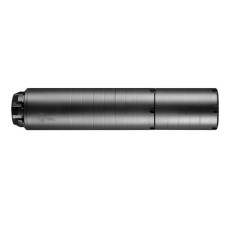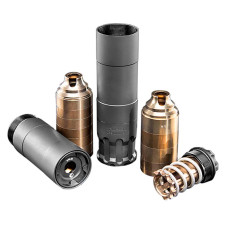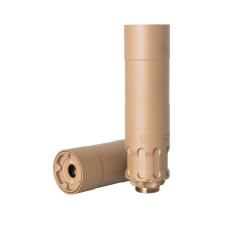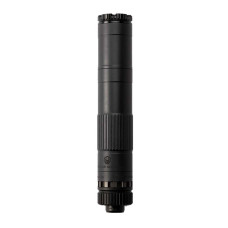Not many things may enhance your 9mm handgun performance except a decent suppressor. Suppressors help to lower muzzle flash, recoil, weapon wear, and noise. Not all suppressors are the same, hence selecting the ideal one for your needs will take time. By stressing important aspects, this article will assist you to decide on the best layout.
Understanding Pistol Suppressor Dynamics
Suppressors for handguns operate differently from those for rifles. In most semi-automatic handguns, including tilt-barrel variants, a suppressor might compromise cycle dependability. Many suppressors address this by including Nielsen devices—boosters or pistons. This mechanism momentarily separates the suppressor from the barrel during recoil to allow suitable cycling despite the additional weight. For handguns with either fixed or rotating barrels, this would not be a concern; tilt-barrel models help. Reliable performance calls for knowledge of the type of silencer and if it has this capability.
Elements Matter: Materials Titanium Against Steel
Both steel and titanium, two most often used suppressor materials have advantages. Though more robust and heavier, steel suppressors can tolerate high firing loads. Excellent for pistols, especially muzzle-sensitive actions, titanium versions are more expensive but lighter. Since 9mm ammunition has lower heat and pressure, many shooters choose titanium suppressors. Their weight-saving ability preserves balance and handling without compromising suppression, therefore promoting the most effective silencer design.
Weight, Dimensions, Ergonomics, etc
Choosing a handgun suppressor depends much on size and weight. Larger suppressors weigh more and are longer, but their larger internal capacity helps them to decrease sound better. These elements might cause your pistol front-heavy or uncomfortable in minor events. Balancing performance and practicality is thus rather important. The most effective silencer design reduces effectively while yet preserving size for home defense or concealed carry. Modern smaller suppressors stress weight and size without sacrificing performance.
Compatibility, Thread Matching
Though usually overlooked, thread compatibility is rather important. The most 9mm suppressors fit 1/2x 28 barrel threads. Certain firearms, especially European imports, use various threads like 1/2×36 or M13.5x1LH. Before you purchase, find out whether the suppressor or piston system fits your barrel and threading. Incompatible fittings might necessitate leave-your suppressor useless or adapters. This is particularly crucial considering suppressors as long-term investments and component of a weapon collecting strategy.
Impact on Target Acquisition and Vision
Specifically unique and usually disregarded until installation is suppressor diameter. Bigger suppressors may hide the iron sights of your handgun, therefore increasing the aiming difficulty. Some might object to low-profile or suppressor-height red dot optics. This is especially true for small pistols with low-profile sights and thick-bodied suppressors. Using a smaller suppressor or better sights on your rifle can help to solve this. Your rifle's ideal silencer should provide unhindered line of sight free from any corrections.
Durability and Maintenance
Longevity never should be taken for granted. Although internal baffle design and material quality limit their endurance, most contemporary suppressors can withstand repeated 9mm fire. The longest-lasting suppressors are titanium or welded stainless steel. While some are sealed, others may be dismantled for cleaning. Assuring long-term performance without frequent professional repair, durable and maintainable silencers let you eliminate carbon buildup without tools.
Compact Suppressors vs. Full- Size Ones
Varied uses call for varied suppressor sizes. For those with mobility-oriented needs, compact suppressors (5 inches long) are perfect. Users of close- quarters and concealed carry especially like them. Though thicker, full-size suppressors better silence sound, particularly with subsonic firing. Select the type of silencer depending on either mobility or noise control. Choosing properly will depend on matching your suppressor to your shooting patterns—casual range time, tactical training, or home defense.
In Conclusion: Reaching Your Perfect Suppressor
Choosing a suppressor comes ultimately from personal experience. You have to give weight, material, size, fit, and weapon mechanics some thought. More crucial than selecting a small titanium suppressor for ease of use or a full-size steel can for highest decibel reduction is finding the proper balance. Search for a silencer that is trustworthy and safe that fits your shooting goals. Recall that a properly-matched suppressor might quiet your gun as well as alter your shooting experience. With every shot, the correct silencer for your 9mm pistol will increase accuracy, control, and enjoyment.














